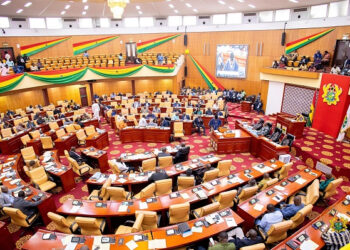Career-networking website According to Australian politicians, LinkedIn is too uninteresting for children to be included in a planned ban on social media for those under the age of sixteen.
The Microsoft-owned corporation told a parliamentary committee in Australia that “LinkedIn simply does not have content interesting and appealing to minors.”
According to the Australian government, “world-leading” regulations would be introduced to prevent youngsters from using social media.
However, in presentations to MPs, the firms that run some of the most popular sites among youth—Meta, Google, TikTok, and Snap Inc.—have all contested the proposed regulation.
According to Prime Minister Anthony Albanese, the new bill would address the harm that social media was causing to children in Australia.
Similar to him, he said that it was for “the mums and dads” who were “worried sick about the safety of our kids online.”
Other nations are keeping a careful eye on the legislation’s progress, and some, including the UK, have stated that they are willing to follow suit.
The draft, which would change Australia’s current Online Safety Act, was given a day for comment by the Senate Environment and Communications Legislation Committee.
According to its report to the Senate, if its suggestions—like involving youth in the legislation’s implementation—are taken into account, the law ought to pass.
“Notable concerns”
However, the largest tech companies in the world have been explaining their dissatisfaction with the proposed rule in their comments.
YouTube’s parent company, Google, and Instagram’s parent company, Meta, have stated that they require additional time to review the legislation.
Meta stated that its current configuration “will fail to achieve its goal of reducing the burden on parents to manage the safety of young people on social media” .
Additionally, it asserted that it “ignores the evidence” put forth by professionals in the fields of child safety and mental health, a position that Snapchat likewise expressed in its own submission.
Meanwhile, X (previously Twitter) questioned whether the bill’s proposals were legal.
TikTok Australia expressed “significant concerns” about the proposed bill.
It stated that it “hinges” on an ongoing age assurance experiment that examines technology that may reliably verify user age, similar to other platforms that have commented on the legislation.
In the company’s contribution, TikTok Australia and New Zealand’s director of public policy, Ella Woods-Joyce, stated that the bill’s “hurried passage poses a serious risk of further unintended consequences.”
However, LinkedIn has taken a different tack, claiming in its submission that it is a site that kids will not find interesting.
The corporation stated that its 16-year-old minimum age prevents them from using it and that it deletes juvenile accounts when discovered.
LinkedIn may be able to avoid the expense and inconvenience of adding more age verification procedures to the website if it can effectively argue that it shouldn’t be covered by the law.
ICYMT: Catholic Church rejects $40,000 from Kenya’s president
“Subjecting LinkedIn’s platform to regulation under the proposed legislation would create unnecessary barriers and costs for LinkedIn’s members in Australia to undertake age assurance,” it stated.
Attention elsewhere
According to the Australian government, the legislation should be introduced before the end of the current legislative year.
However, experts claim that the bill’s existing structure and timeline do not allow for sufficient review.
After attending a public Senate session, the nation’s privacy commissioner, Carly Kind, expressed her alarm about “the widespread privacy implications of a social media ban” in a LinkedIn post on Monday.
“Entirely inadequate” is how human rights commissioner Lorraine Findlay described the one-day opportunity for responding to the legislation in a LinkedIn post on Thursday.
“We need actual consultation, not just the appearance of it,” she stated.
However, the ambitions of the Australian government have generated interest in other places.
This month, Peter Kyle, the UK’s technology secretary, told the BBC that such legislation was “on the table.”
Research shows that over half of users were able to get around the prohibition with a basic VPN, despite the fact that France has previously adopted legislation requiring social media firms to block access to children under 15 without parental agreement.
SOURCE: BBC


























